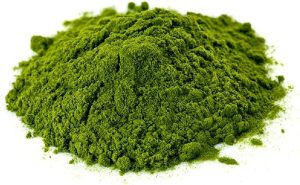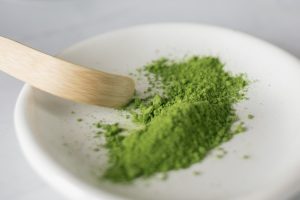
- Overview of Choline
- Brief History of Choline
- Functions of Choline
- Recommended Daily Intake (RDI), Recommended Dietary Allowance (RDA), Adequate Intake (AI), or Reference Nutrient Intake (RNI) for Choline
- Deficiency of Choline
- Food Sources of Choline and Where to Get It From
- Choline and Its Interaction with Other Medications
- Websites and Articles to Delve into the Benefits of Choline
- Disclaimer
Overview of Choline
Choline, classified as an essential nutrient, plays a multifaceted role in maintaining optimal health. Abundant in foods such as eggs, meat, and certain vegetables, choline is a vital component in the synthesis of phosphatidylcholine, a major constituent of cell membranes. Its involvement in cell membrane structure ensures the integrity and fluidity of cellular membranes, influencing overall cellular function.
Choline is also a precursor to acetylcholine, a neurotransmitter critical for various cognitive functions, including memory and muscle control. Beyond its role in neurotransmitter synthesis, choline participates in methylation reactions, contributing to the production of molecules essential for liver function and DNA methylation. Adequate choline intake is particularly crucial during pregnancy, supporting proper fetal brain development. Despite its importance, many individuals do not meet recommended choline intake levels, emphasizing the need for awareness and conscious dietary choices or supplementation to ensure optimal health.
Brief History of Choline
The discovery and recognition of choline as an essential nutrient have evolved over time. Choline was first identified in 1862 by the German chemist Adolph Strecker, who isolated it from pig and ox bile. However, its nutritional significance and essentiality for humans were not fully understood until much later.
In the early to mid-20th century, researchers began to recognize the importance of choline in preventing fatty liver disease in animal studies. The term “lipotropic factor” was used to describe compounds like choline that could influence fat metabolism in the liver. The essential nature of choline was officially established in the 1990s when the Institute of Medicine recognized it as a required nutrient for human health.
Since then, research has further elucidated choline’s critical roles in cell membrane structure, neurotransmitter synthesis, and other physiological processes. The understanding of choline’s significance has grown, emphasizing its essentiality and the importance of meeting recommended dietary intake levels for overall health.
Here we present the information about the discovery and recognition of choline in a table format:
| Stage | Details |
|---|---|
| Discovery (1862) | Choline was first identified in 1862 by the German chemist Adolph Strecker, who isolated it from pig and ox bile. However, its nutritional significance and essentiality for humans were not fully understood at that time. |
| Early to Mid-20th Century | Researchers in the early to mid-20th century began recognizing the importance of choline in preventing fatty liver disease in animal studies. The term “lipotropic factor” was used to describe compounds like choline that could influence fat metabolism in the liver. |
| Official Recognition (1990s) | The essential nature of choline was officially established in the 1990s when the Institute of Medicine recognized it as a required nutrient for human health. This acknowledgment marked the inclusion of choline in the list of essential nutrients for maintaining overall health. |
| Roles in Physiological Processes | Research since the 1990s has elucidated choline’s critical roles in cell membrane structure, neurotransmitter synthesis, and other physiological processes. The understanding of choline’s significance has grown, emphasizing its essentiality for various bodily functions. |
| Importance and Recommended Intake Levels | The importance of meeting recommended dietary intake levels for choline has been emphasized for overall health. Adequate choline intake is recognized for supporting cell structure, neurotransmission, and other vital functions. Understanding its significance has led to recommendations to ensure sufficient choline in the diet. |
Functions of Choline
Choline is an essential nutrient that plays diverse and vital roles in maintaining overall health. Here are some key functions of choline in the body:
- Cell Membrane Structure:
- Choline is a crucial component of phosphatidylcholine, a major phospholipid that forms cell membranes. It contributes to the structural integrity and fluidity of cell membranes, impacting cellular function and signaling.
- Neurotransmitter Synthesis:
- Choline is a precursor to acetylcholine, a neurotransmitter involved in muscle control, memory, and other cognitive functions. Adequate choline levels support optimal neurotransmitter synthesis.
- Methylation Reactions:
- Choline participates in methylation reactions, contributing to the synthesis of molecules such as betaine and S-adenosylmethionine (SAMe). These molecules play roles in liver function, DNA methylation, and gene expression.
- Fat Metabolism:
- Choline is involved in lipid metabolism, aiding in the transport and metabolism of fats. It helps prevent the accumulation of fat in the liver, and its lipotropic properties are beneficial for liver health.
- Brain Development During Pregnancy:
- Adequate choline intake during pregnancy is crucial for fetal brain development. Choline contributes to the formation of neural tube structures and influences cognitive outcomes in offspring.
- Cognitive Function:
- Choline’s role in acetylcholine synthesis makes it essential for proper cognitive function, including memory and learning. Studies suggest that choline supplementation may have cognitive benefits, particularly in certain populations.
- Homocysteine Metabolism:
- Choline is involved in the conversion of homocysteine to methionine, contributing to the regulation of homocysteine levels. Elevated homocysteine is associated with an increased risk of cardiovascular disease.
- Cell Signaling:
- Choline and its derivatives serve as signaling molecules in various cellular pathways, influencing cell communication and responses to external stimuli.
While choline is naturally present in various foods, including meat, eggs, and certain vegetables, it is essential to ensure an adequate intake through a balanced diet or supplements when needed.
Recommended Daily Intake (RDI), Recommended Dietary Allowance (RDA), Adequate Intake (AI), or Reference Nutrient Intake (RNI) for Choline
The Recommended Dietary Allowance (RDA) for choline has been established by the National Academies of Sciences, Engineering, and Medicine in the United States. The values vary by age and gender. It’s important to note that different countries or health organizations may have their own recommendations. Here are the RDAs for choline:
- Infants (0-6 months): 125 milligrams per day
- Infants (7-12 months): 150 milligrams per day
- Children (1-3 years): 200 milligrams per day
- Children (4-8 years): 250 milligrams per day
- Boys and Girls (9-13 years): 375 milligrams per day
- Boys (14-18 years): 550 milligrams per day
- Girls (14-18 years): 400 milligrams per day
- Men (19 years and older): 550 milligrams per day
- Women (19 years and older): 425 milligrams per day
- Pregnant Women: 450 milligrams per day
- Breastfeeding Women: 550 milligrams per day
The Adequate Intake (AI) for choline is sometimes used when there is not enough evidence to establish an RDA. The AI values for choline are generally lower than the RDAs.
These recommendations are subject to change as new research emerges, so it’s advisable to check for updates or consult the latest guidelines from health authorities. Additionally, individual needs may vary, and specific health conditions may warrant adjustments in choline intake. If you have concerns about your choline intake, it’s recommended to consult with a healthcare professional or a registered dietitian.
Deficiency of Choline
Choline deficiency is relatively rare, as the body can synthesize small amounts of choline, and it is found in various foods. However, inadequate intake over an extended period can lead to health issues. Choline deficiency is not typically associated with specific symptoms, making it challenging to diagnose solely based on clinical manifestations. Nevertheless, certain health conditions and population groups may be more prone to choline inadequacy.
Potential consequences of choline deficiency include:
- Liver Issues:
- Choline is crucial for the metabolism of fats in the liver. A deficiency may contribute to fatty liver disease and impaired liver function.
- Neurological Effects:
- Choline is a precursor to acetylcholine, a neurotransmitter important for cognitive function. Inadequate choline may impact memory and cognitive performance.
- Muscle Damage:
- Some studies suggest that choline deficiency may lead to muscle damage, possibly due to impaired cell membrane integrity.
- Pregnancy Complications:
- During pregnancy, a deficiency in choline may negatively affect fetal development, potentially influencing neural tube formation and cognitive outcomes in the offspring.
- Increased Homocysteine Levels:
- Choline is involved in the metabolism of homocysteine. A deficiency may contribute to elevated homocysteine levels, which is associated with an increased risk of cardiovascular disease.
It’s important to note that establishing clear symptoms of choline deficiency can be challenging, and research on this topic is ongoing. The Recommended Dietary Allowance (RDA) has been established to help prevent deficiencies and promote overall health.
To ensure sufficient choline intake, individuals are encouraged to consume a balanced diet that includes choline-rich foods such as eggs, meat, fish, dairy products, and certain vegetables. In cases where dietary intake is insufficient or if there are specific health conditions, choline supplements may be considered under the guidance of a healthcare professional. As always, individual needs can vary, and consulting with a healthcare provider or registered dietitian is advisable for personalized advice.
Food Sources of Choline and Where to Get It From
Choline is present in a variety of foods, and a well-balanced diet usually provides adequate amounts. Here are some food sources of choline:
- Eggs:
- Egg yolks are one of the richest sources of choline. Consuming whole eggs is an excellent way to incorporate choline into your diet.
- Liver:
- Liver, especially beef liver, is a highly concentrated source of choline. However, it’s essential to consume liver in moderation due to its high vitamin A content.
- Meat:
- Various meats, such as chicken, turkey, beef, and pork, contain significant amounts of choline. Organ meats, like heart and kidneys, are particularly rich.
- Fish:
- Fish, including salmon, cod, and shrimp, are good sources of choline. Fatty fish like salmon also provide additional health benefits from omega-3 fatty acids.
- Dairy Products:
- Milk, yogurt, and cheese contain choline. Opt for low-fat or non-fat dairy options for a healthier overall diet.
- Soy Products:
- Soy-based foods, including tofu and soybeans, are plant-based sources of choline suitable for vegetarians and vegans.
- Nuts and Seeds:
- Some nuts and seeds, such as peanuts and sunflower seeds, contain moderate amounts of choline.
- Vegetables:
- Certain vegetables contribute to choline intake, albeit in lower amounts. Broccoli, Brussels sprouts, and cauliflower are among the vegetables that contain some choline.
- Whole Grains:
- Whole grains like quinoa and wheat germ contain choline. Including a variety of whole grains in your diet contributes to overall choline intake.
It’s important to note that individual choline needs can vary, and factors such as age, gender, and life stage (pregnancy, lactation) can influence the recommended intake. While animal-based sources are more concentrated, plant-based sources can contribute to choline intake, especially when consumed in sufficient quantities and variety.
If you have specific dietary concerns or restrictions, consulting with a registered dietitian or healthcare professional can help ensure you are meeting your choline needs through appropriate food choices or, if necessary, supplementation.
Choline and Its Interaction with Other Medications
Choline supplements are generally considered safe for most people when taken within recommended doses. However, it’s essential to be aware of potential interactions with certain medications. If you are considering choline supplements or have specific health conditions, it’s advisable to consult with a healthcare professional. Here are some interactions to be mindful of:
- Anticholinergic Medications:
- Choline may have additive effects with medications that have anticholinergic properties. These medications, commonly used to treat conditions such as allergies, asthma, and gastrointestinal issues, work by blocking the action of acetylcholine, a neurotransmitter. Combining choline supplements with anticholinergic medications may potentially counteract their effects.
- Blood Thinners (Anticoagulants/Antiplatelet Drugs):
- Choline, particularly in high doses, may have antiplatelet effects. Combining it with blood-thinning medications like warfarin, aspirin, or clopidogrel may increase the risk of bleeding. If you are on anticoagulant therapy, consult with your healthcare provider before using choline supplements.
- Levodopa (Used for Parkinson’s Disease):
- Choline supplements may interfere with the absorption of levodopa, a medication commonly used in the treatment of Parkinson’s disease. Taking choline and levodopa together may reduce the effectiveness of levodopa.
- Acetylcholinesterase Inhibitors (Used for Alzheimer’s Disease):
- Choline supplements may have additive effects with acetylcholinesterase inhibitors, medications prescribed for Alzheimer’s disease. Combining the two could potentially increase cholinergic effects and side effects.
- Medications Metabolized by Cytochrome P450 Enzymes:
- Choline may interact with enzymes in the liver, including cytochrome P450 enzymes. This interaction could affect the metabolism of certain drugs, potentially altering their blood levels. If you are taking medications metabolized by these enzymes, consult with your healthcare provider.
It’s crucial to inform your healthcare provider about any supplements you are taking, including choline, and disclose your complete medication list. Individual responses to supplements can vary, and professional guidance is crucial to ensure your safety and well-being. Always follow your healthcare provider’s advice regarding the use of supplements, especially if you have underlying health conditions or are taking medications.
Websites and Articles to Delve into the Benefits of Choline
Feel free to explore these sources for a comprehensive understanding of choline and its various aspects. As always, consult with healthcare professionals for personalized advice.
- WebMD – Choline:
- WebMD provides information on choline, covering its uses, side effects, interactions, and potential health benefits.
- Cleveland Clinic – Choline Supplement:
- The Cleveland Clinic discusses choline supplements, including their uses, potential benefits, and considerations.
- Healthline – What Is Choline?:
- Healthline offers an overview of choline, its functions, dietary sources, and potential health benefits.
- University of Rochester Medical Center – Choline:
- The University of Rochester Medical Center provides information on choline, its functions, and dietary sources.
- Wikipedia – Choline:
- Wikipedia provides a comprehensive entry on choline, covering its chemical structure, sources, functions, and related topics.
- Linus Pauling Institute – Choline:
- The Linus Pauling Institute discusses choline, its roles in the body, recommended intake, and potential health implications.
- Medical News Today – Choline:
- Medical News Today explores choline, including its functions, dietary sources, and potential health benefits.
- Verywell Health – Choline:
- Verywell Health covers choline, its importance, dietary sources, and considerations for supplementation.
- Harvard T.H. Chan School of Public Health – Choline:
- Harvard’s Nutrition Source provides information on choline, including its importance, dietary sources, and recommendations.
- ScienceDirect – Choline:
- ScienceDirect discusses choline in the context of medicine and dentistry, covering various aspects related to its use.
- Mayo Clinic – Choline C-11 Intravenous Route:
- Mayo Clinic provides information on Choline C-11, particularly related to its use in medical imaging.
Disclaimer
The information is solely provided for educational purposes. It is not intended to diagnose, treat, cure, or prevent any disease. Seek the advice of your physician or qualified healthcare provider with any questions you may have regarding a medical condition at all times. Never disregard professional medical advice because of something you have read or learned from this article.






